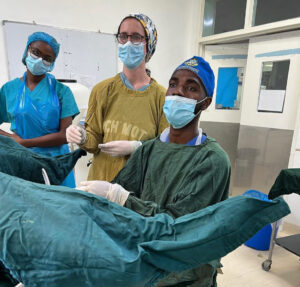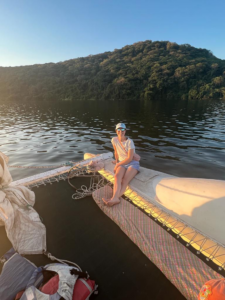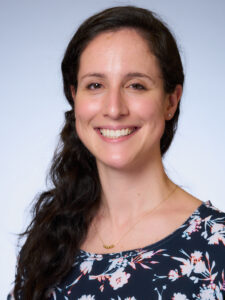Originally Published at globalhealth.unc.edu
UNC’s urologic surgery partnership with Malawi started with Charles Mabedi, MD, the sole urologist in Malawi, who received his urology training in Tanzania and came to UNC as a visiting professor in 2017. Since then, Mabedi has been working with Anthony Charles, MD, the Surgical Director for the Institute for Global Health and Infectious Diseases (IGHID), to grow the partnership. Dr. Charles leads the Malawi Surgical Initiative and works with IGHID’s Director Myron Cohen, MD, to expand global surgery initiatives.
Christine Nikas, MD, wrapping up year five as a chief resident in the Department of Urology, completed a global health observership at Kamuzu Central Hospital in Lilongwe, Malawi. While her plan is to go into practice with a hospital in the suburbs of Boston, she is particularly interested in education and training, and hopes to contribute to urology training in Malawi in the future.
How did this opportunity come about?
“I’ve always been really interested in global health. In medical school, I spent two months in Colombia and then did a rotation in Honduras. I knew urology residents who had gone to Malawi in the past, and I always want to do this.
Prior to COVID-19, the chief residents in urology had been going to Malawi for two weeks at a time to work with Dr. Mabedi, and they would essentially help him out with cases and learn from him. They would also spend some time at Malawi’s fistula clinic, too. But with COVID-19 and travel restrictions during the last three years, the program paused. During this time, Dr. Mabedi started a residency program from the ground up. I talked with our program director about bringing this global health experience back because it is so valuable for both UNC residents and Malawi residents.
I traveled the during the last week of April, and worked with three residents in their first urology year. We did cases together and I took them through some cases on my own. We did surgeries that I hadn’t done before, such as different urinary diversions that we don’t do here in the states. Our typical pathway for treatment or for triaging acute inpatients for different problems is vastly different than the steps that they’ll take because they don’t have access to the supplies to do what we might do.”
What kinds of conditions were you able to learn about?

“I saw many of the same types of patients that we see in Chapel Hill, with similar issues like pelvic pain or erectile dysfunction. Then, there are people who have urinary catheters, who may have problems with urinary strictures, enlarged prostates, and voiding dysfunction. “It was also interesting to be in a clinic where they don’t have computer records. Every patient has a small booklet with their entire life history that they bring, and you can look at it to see what they were seen for last. Then, you write their treatment in the booklet, for conditions that are similar to what you’re seeing in Chapel Hill.”
Did you operate or perform any procedures?
“I operated most every day, except on the weekends. We did quite a few suprapubic catheter placements for patients. And there’s a lot of urinary urethral strictures disease. This is because the waiting time is so long for them to get surgeries to repair those structures. They are managed long term with a suprapubic catheter, inserted into the bladder. This protects the bladder or the kidneys until the patient can get a surgery.
“We also saw a lot of pediatric patients, with posterior urethral valves, which we see in the states, although not as frequently treated the same way we did. In some cases, it was the first time the urology residents had performed these procedures so I was able to teach them how.
“There was also bladder cancer, for which we performed cystectomies for patients. Schistosoma is endemic in Lake Malawi, and it can cause bladder cancer. Squamous cell bladder cancer is a different bladder cancer that we see in the states, is usually caused by smoking. But they see bladder cancer more often related to this parasite. We also did a radical cystectomy for a patient there, and I learned how to do it.
“Urinary diversions are needed after removing the bladder, so that the urine can drain. Typically, in the states we do what’s called like a urinary conduit surgery, where the patient has a urostomy afterwards, like a stoma or pouch that drains out of the body, similar to a colostomy. But stoma supplies in Malawi are limited and hard to come by. If you were to give a patient a urostomy or colostomy, they would have to somehow manage the pouch and draining urine. Instead, Malawi surgeons do a different diversion, where they hook the ureters into a pouch of their colon, and then everything drains from the rectum. They don’t have to have an external pouch so they don’t need any bags. They don’t need those supplies. This was fascinating to learn. We also saw penile cancer more frequently there than I’ve seen here, and prostate cancer, which was also very interesting, because due to a lack of radiation access that we have in radiation oncology, Malawians usually treat prostate cancer only once it’s metastatic with orchiectomy, essentially like castration. We did quite a few of those.”
What did you find most memorable?

“My favorite part about it was working with the residents, and that’s my favorite part about residency here, the education and training. The Malawian residents were so eager to learn and understand how we do things here, but I also learned from them. I would go on consults with them, knowing there would be the same issue that I would see in the Chapel Hill, except that figuring out the treatment would be different. It was about how can we solve this problem with the supplies that we have, and the news that we have, and I think these residents in many ways are more advanced because they really have to learn to work with what they have available to them. They reuse everything. And everything is cleaned and reused because every tool is precious and limited. The teaching aspect, from both directions, was really valuable to me, and there is a lot to learn. Here in the U.S., it’s challenging to balance the goals of sterility and waste, which really compete against each other.”
About UNC Project Malawi
UNC Project Malawi began as a collaboration with the Malawi Ministry of Health with the design of clinical management guidelines for HIV and STDs, founded by Myron Cohen and Irving Hoffman in 1990. This partnership was institutionalized in 1999 when UNC Malawi activities were consolidated into a center of excellence for HIV/STD research, patient care and capacity building, on the campus of Kamuzu Central Hospital, a 1,000-bed, public tertiary care hospital operated by the Ministry of Health. Today, operating through the Institute for Global Health & Infectious Diseases, UNC Project Malawi has 320 employees who conduct independent research and care for patients, with clinical registries in pediatrics, cancer, trauma, STI and sickle cell. Both Malawi and U.S. trainees benefit from years of capacity building and sustained research and scholarship.
About the Institute for Global Health & Infectious Diseases
Established in 2007, the Institute for Global Health & Infectious Diseases (IGHID) is the engine that drives UNC’s global health research, bringing transformative solutions to the most important global health issues of our time–through research, training and service. IGHID’s work has saved millions of lives and shaped policy worldwide through cutting-edge research, especially in the areas of HIV, Malaria and now COVID. Working in over 50 countries around the globe, including Malawi, IGHID provides a unique pan-university framework for collaboration and facilitating global health science and practice. It is this framework that continues to catalyze a global health community committed to improving health worldwide while building the capacity of thousands of scientists and health professionals globally.

